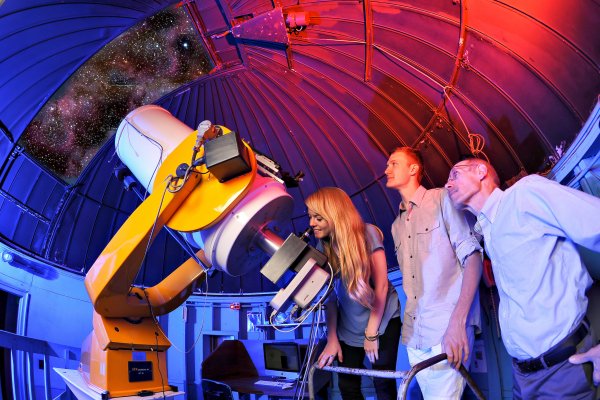Computational Physics
Valpo researchers use math to probe very tiny questions.
In computational research, scientists perform complex calculations to better understand aspects of the physical world. For Professor Zygmunt and Professor He, this means understanding materials and processes much too small to be seen by the human eye.
Computational study of catalysis
Professor Zygmunt’s research involves the calculation of the reaction pathways and energies of molecules interacting with catalytic sites. He is currently studying the oxidative dehydrogenation (ODH) of the hydrocarbon molecule propane to propene using a vanadium oxide catalyst. This work shows that the ODH reaction is facilitated by a spin crossing from the singlet to the triplet state, which lowers the energy barrier for the reaction.
Prior to this work, he carried out extensive calculations to study the adsorption and reactions of hydrocarbon molecules in zeolites, a family of catalysts with important applications in the petrochemical industry.
Professor Zygmunt’s work is done with undergraduates at Valparaiso University and at Argonne National Laboratory and has been supported by funding from the U. S. Department of Energy, the Petroleum Research Fund, and the Indiana Space Grant Consortium.
Computational study of nanoscale materials
Professor He conducts computational studies of nanoscale materials and their applications in electronics, energy, and biology. This work includes simulating the reactivity, structural, electronic, and physical properties of low-dimensional materials and predicting properties of new materials and new heterostructures using first-principles and molecular dynamics approaches.
